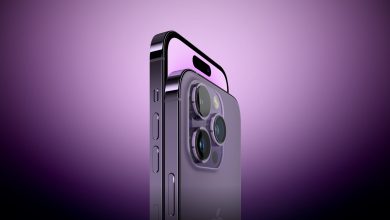How Important Smartphone Privacy and Security Have Become?

Smartphones have become an integral part of our daily lives, serving as personal assistants, entertainment hubs, and communication devices. With the increasing amount of sensitive information stored on these devices, the importance of smartphone privacy and security has grown significantly. In this article, we will delve into the crucial role that privacy and security play in our smartphone usage.
Personal Information at Your Fingertips
Smartphones are repositories of our personal information, from contact lists and messages to photos and financial data. With this wealth of personal data accessible through our devices, the need to safeguard this information has become paramount.
Data Breaches and Cyberattacks
The digital age has given rise to data breaches and cyberattacks that can compromise the privacy and security of smartphone users. Hackers and cybercriminals are constantly devising new ways to gain unauthorized access to sensitive data, making smartphones vulnerable targets.
Financial Transactions and Mobile Banking
The convenience of mobile banking and financial transactions has become a standard feature on smartphones. Honor magic Vs is a very safe phone from a privacy and security perspective, so while choosing a phone look at this perspective as well. With the capability to check account balances, transfer funds, and make payments through apps, securing financial information on your device is critical.
Location Tracking and Privacy Concerns
Location-based services are prevalent in smartphones, offering navigation, location sharing, and personalized recommendations. However, this convenience raises concerns about privacy, as the constant tracking of a user’s location can be exploited if not adequately protected.
App Permissions and Data Access
Apps are an essential part of the smartphone experience, but they often request access to a variety of device features and data. Users must be vigilant about granting permissions and ensure that apps are not overreaching in accessing their personal information.
Biometric Authentication and Data Protection
Biometric authentication methods, such as fingerprint and facial recognition, have improved the security of smartphones. These features provide a convenient and secure way to unlock devices and access sensitive data.
The Role of Encryption
Encryption is a fundamental tool for protecting smartphone data. End-to-end encryption for messaging apps ensures that only the intended recipients can access the content of messages. Strong encryption practices can prevent unauthorized access to data, even if the device is lost or stolen.
Public Wi-Fi and Security Risks
Public Wi-Fi networks are convenient for staying connected on the go, but they pose security risks. Cybercriminals can exploit vulnerabilities in these networks to intercept data transmitted from smartphones. Users should exercise caution when connecting to public Wi-Fi and consider using virtual private networks (VPNs) for added security.
Mobile Security Apps and Software Updates
Mobile security apps offer an additional layer of protection against malware and other threats. Regular software updates from smartphone manufacturers are also crucial, as they often include security patches to address vulnerabilities.
Conclusion
Smartphone privacy and security have become critically important in the digital age. As these devices continue to evolve and integrate into various aspects of our lives, the potential risks associated with data breaches and cyberattacks are on the rise. Safeguarding sensitive information, understanding the risks, and staying informed about security best practices are essential for smartphone users.





